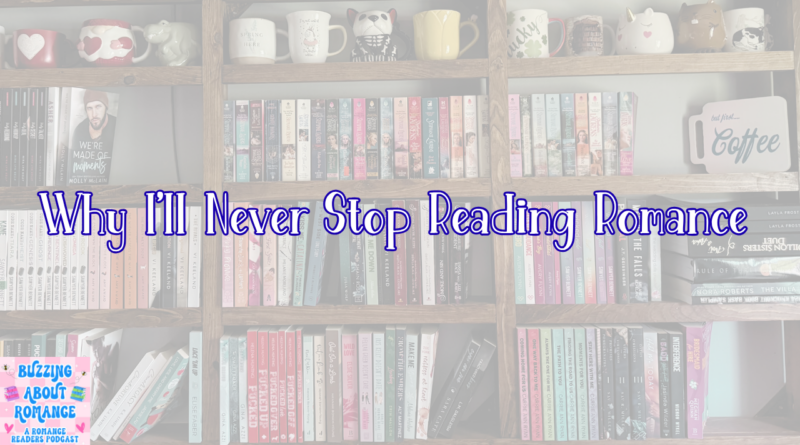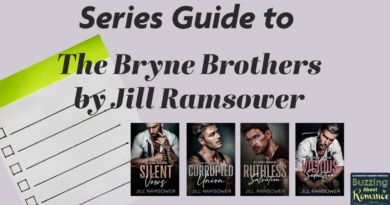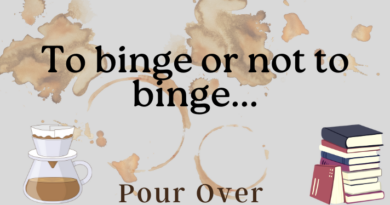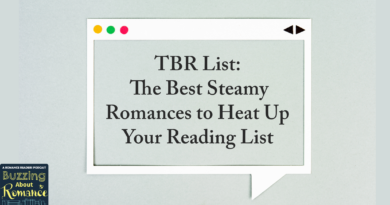Why I’ll Never Stop Reading Romance
In Defense of the Authors, Readers, and Stories That Keep This Genre Beating
Every few months, someone declares that romance has lost its way.
Recently, a widely shared Substack titled “Why I Stopped Reading Romance” argued that “poor writing is permitted in romance books because the expectation is no longer a great story or great characters, but great smut.”
I’ve seen takes like this before. They always circle back to the same anxiety—that the rise of indie publishing and BookTok has somehow “cheapened” the genre.
As someone who works inside publishing, runs a romance-focused platform, and spends more hours reading love stories than I’d ever admit to my accountant, I understand the frustration. I also have a love-hate relationship with BookTok: the hype cycles can be exhausting, the trends fleeting. But the truth is this:
I will always read romance. And I will always support indie authors.
Because romance isn’t in decline. It’s evolving.
📚 “Bypassing the Rigorous Model” — or Redefining It?
In her essay, Leah Beth wrote:
“Self publishing is not inherently a bad thing, but the fact that these authors can bypass the more rigorous model of traditional publishing permits them to publish books whenever they want, often multiple times a year.”
That phrasing—“bypass the rigorous model”—reveals an outdated hierarchy. Indie publishing isn’t about skipping quality; it’s about owning the process.
Indie authors often hire professional editors, proofreaders, and designers. They manage their marketing, distribution, and reader engagement like small business owners—because they are small business owners. And they do it without the safety net or institutional privilege of a traditional house.
Publishing multiple books a year doesn’t mean cutting corners. It means understanding the marketplace, delivering to a loyal readership, and sustaining a creative career.
Some of today’s biggest names—Lucy Score, Elsie Silver, Meghan Quinn, and Tessa Bailey—either began as indie authors or built their audiences in the indie space before hitting the New York Times list. The same list, by the way, currently features books that started as indie titles. That isn’t decline; that’s proof that indie publishing feeds the industry.
💞 On Heat, Intimacy, and Emotional Honesty
Leah Beth also wrote:
“The whole formula of a romance seems to have been reversed… the characters only exist for the sake of leading up to the smut scenes.”
I disagree—not because every romance succeeds at balancing intimacy and story (no genre is flawless), but because this take overlooks how intentional many authors are about the role of intimacy.
Those moments on the page aren’t tacked on; they’re often where vulnerability, trust, and transformation happen. For decades, romance has been dismissed as frivolous or “too sexual”—and yet, it’s one of the few genres consistently centering mutual desire and emotional consent.
When we talk about heat in romance, we’re really talking about honesty: about bodies, about longing, about what it means to be seen. That’s not gratuitous—it’s radical.
🔄 BookTok Didn’t Break Romance
It’s easy to blame BookTok for the sameness some readers feel. The platform can reward trends that prioritize “quick pitchability” over complexity. But it also created the most democratized discovery system romance has ever had.
BookTok is where debut indie authors can explode overnight, where readers can share tear-streaked reactions, and where niche subgenres—like cozy fantasy romance or mature small-town love stories—can find massive audiences.
Do some books rise fast and fade faster? Sure. But that’s the trade-off of an open ecosystem: anyone can connect with everyone.
🩷 The Heart of the Genre
Leah Beth concluded, “I think the romance genre can be better, because it has been better.”
I’d argue the opposite: romance has never been broader, braver, or more inclusive.
We’re seeing heroines in their forties, heroes processing grief and therapy, queer love stories, interracial and neurodivergent representation, even monster and paranormal tales that explore gender and power dynamics in unexpected ways.
That’s not regression—that’s renaissance.
✨ Why I’ll Keep Reading
Romance will always have its trends and copycats, but that’s true of every popular genre. The difference is that romance never forgets its purpose: to give readers hope, to let them believe in connection, to remind us that love—messy, imperfect, human love—is still worth rooting for.
So yes, I’ll roll my eyes at the occasional overhyped BookTok trend. I’ll skim a few books that miss their emotional mark. But I’ll also keep one-clicking new indie releases, reviewing debut authors, and celebrating the ones who make me fall in love with reading all over again.
Because the genre isn’t broken.
It’s just ours.



